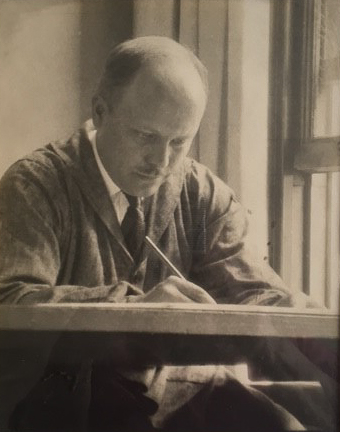This year will mark the 102nd anniversary of the O. Henry Prize Stories,” an annual collection of the very best short stories written in the U.S. and Canada. But, how much do we know about the collection’s namesake, an author who became synonymous with the Short Story? O. Henry, whose real name was William Sydney Porter, lived a life that was certainly as full of twists, turns, ironies and coincidences as the plots of some of his most well-known stories, such as “The Gift of the Magi,” “The Last Leaf,” and “The Ransom of Red Chief.”

Born in Greensboro, North Carolina in 1862, Porter worked in his uncle’s drugstore as a youngster, later becoming a licensed Pharmacist himself. Hungry for adventure, Porter left Ohio for Texas, first working as a ranch-hand. Later, while working as a bank clerk in Austin, he was accused of embezzlement. He subsequently ran away to New Orleans, where he got a job as a newspaper reporter, before fleeing to Central America. After receiving word that his wife was gravely ill (of tuberculosis) he returned home, and as the story goes, was arrested. The truth is less dramatic: After reuniting with his wife, he turned himself in to the authorities and was charged with embezzling $854.08 from the bank. His wife, Athol, died a few months later.
Porter may not have actually been guilty, but he nonetheless spent three years in Ohio State Prison. It is interesting to note, that while doing time, William Porter worked as a Druggist, resided in a room adjacent to the prison hospital, and never lived in the regular prison population. Although he had written fiction before going to prison, it was in prison that Porter began using the pen name “O. Henry.” Explanations from the likely to the outlandish have been posited as to how or why he chose his pen name. One possibility: the Captain of the prison guards was a fellow named Orrin Henry. Here’s another: O H IO Pe n itentia r y
O. Henry’s first published short story, appearing in McClure’s magazine in 1899, was entitled “Whistling Dick’s Christmas Stocking.” After the success of other stories, and most importantly, getting out of prison, the author now known as “O. Henry” moved to New York City, to be near his publisher. He spent the rest of his life there, eventually writing 381 short stories.
O. Henry’s stories evince a delight in language. He would often weave a really unusual word into a paragraph- possibly just for the sheer fun of it! His narrative voice is by turns audacious, benignly omniscient, worldly-wise, or just plain wiseacre- all depending upon the characters, locale, and trajectory of the story. His abilities with dialogue, and dialect, display true experience with every strata of society; from a Wall Street tycoon, to the most down-and-out hobo; from a country cowpuncher, to a scheming city criminal. In narration or dialogue, O. Henry excels at the inventive, entertaining, turn-of-phrase. For example, In “The Pimienta Pancakes,” one of the rustic characters describes the pancakes as “They’re golden sunshine… honey-browned by the ambrosial fires of Epicurus…” Also, in the course of this very amusing story, another character utters the words “jookalorum” and “zizzaparoola.” We perceive these words as authentic, archaic Western slang, but O. Henry actually invented them!
Find titles by O. Henry in our catalog.


